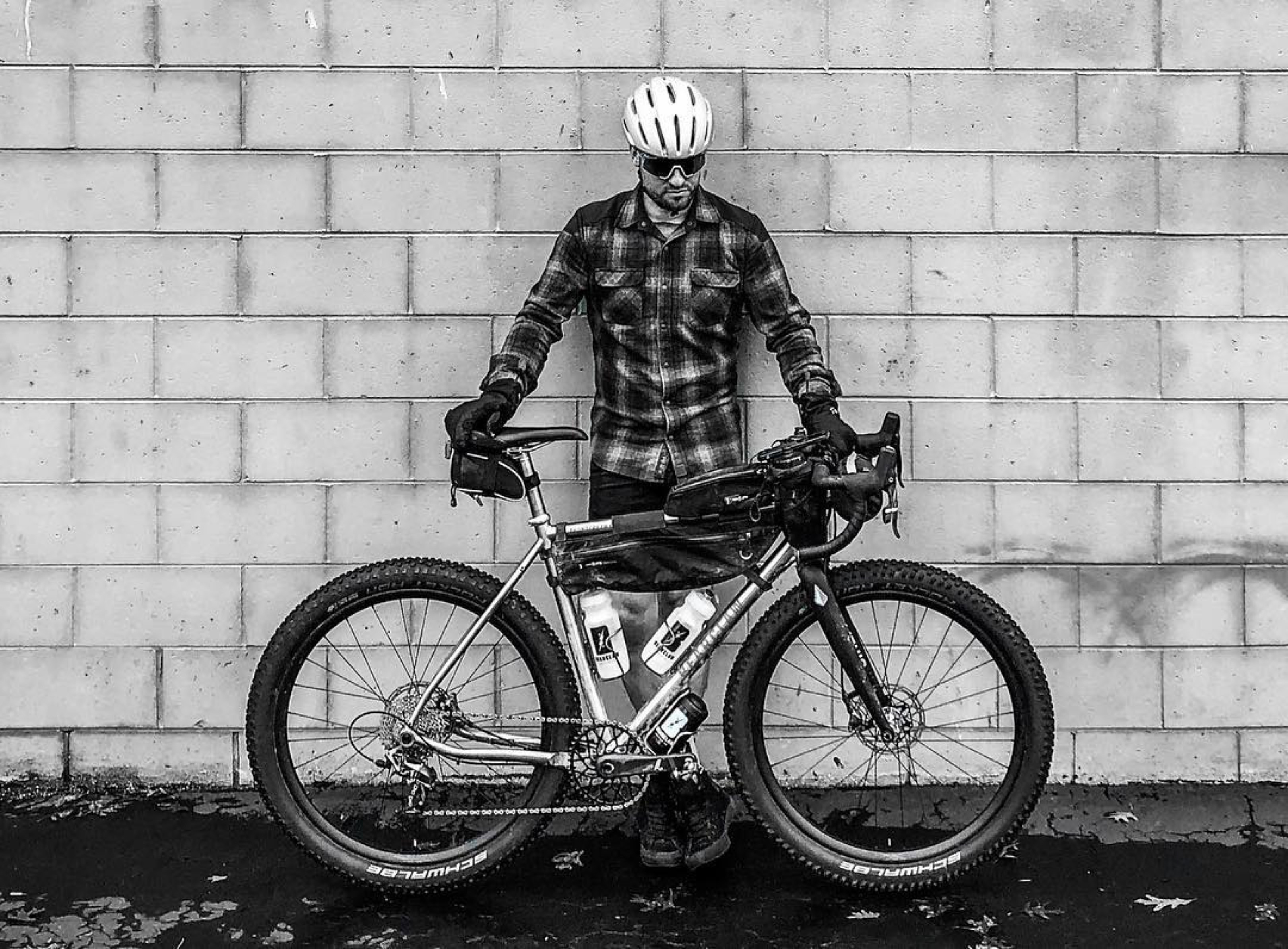 Jason Lowetz of Bearclaw Bicycles Poses with a Titanium Bike Frame
Jason Lowetz of Bearclaw Bicycles Poses with a Titanium Bike Frame
Traverse City, Michigan, often lauded as the Cherry Capital of the World, might seem an unlikely birthplace for a cutting-edge bicycle company. Growing up in this lakeside town, surrounded by rolling landscapes more suited to leisurely rides than epic climbs, Jason Lowetz, the founder of Bearclaw Bikes, experienced the local cycling scene firsthand. From early BMX races behind McClain Cycles to purchasing his first road bike at Brick Wheels downtown, his Michigan upbringing was steeped in cycling culture, albeit one often overshadowed by the region’s famed ski trails, cherry festivals, and Sleeping Bear Dunes. Despite the relatively short cycling season and lack of mountainous terrain, this Northern Michigan environment unexpectedly became the fertile ground for Bearclaw Bikes to take root and flourish.
It was somewhat surprising to discover that Bearclaw Bicycle Co., an innovative bike brand, calls this very corner of Michigan home. They design, build, and ship out some truly remarkable bikes from this location. Intrigued, we reached out to Jason Lowetz, the driving force behind Bearclaw, to delve into the story of how he transitioned from aspiring rock musician in Los Angeles to a passionate advocate for two-wheeled adventures in Traverse City. What follows is the insightful narrative of Bearclaw Bikes’ genesis and evolution, straight from the founder himself.
From Rock Star Dreams to Bike Building Reality
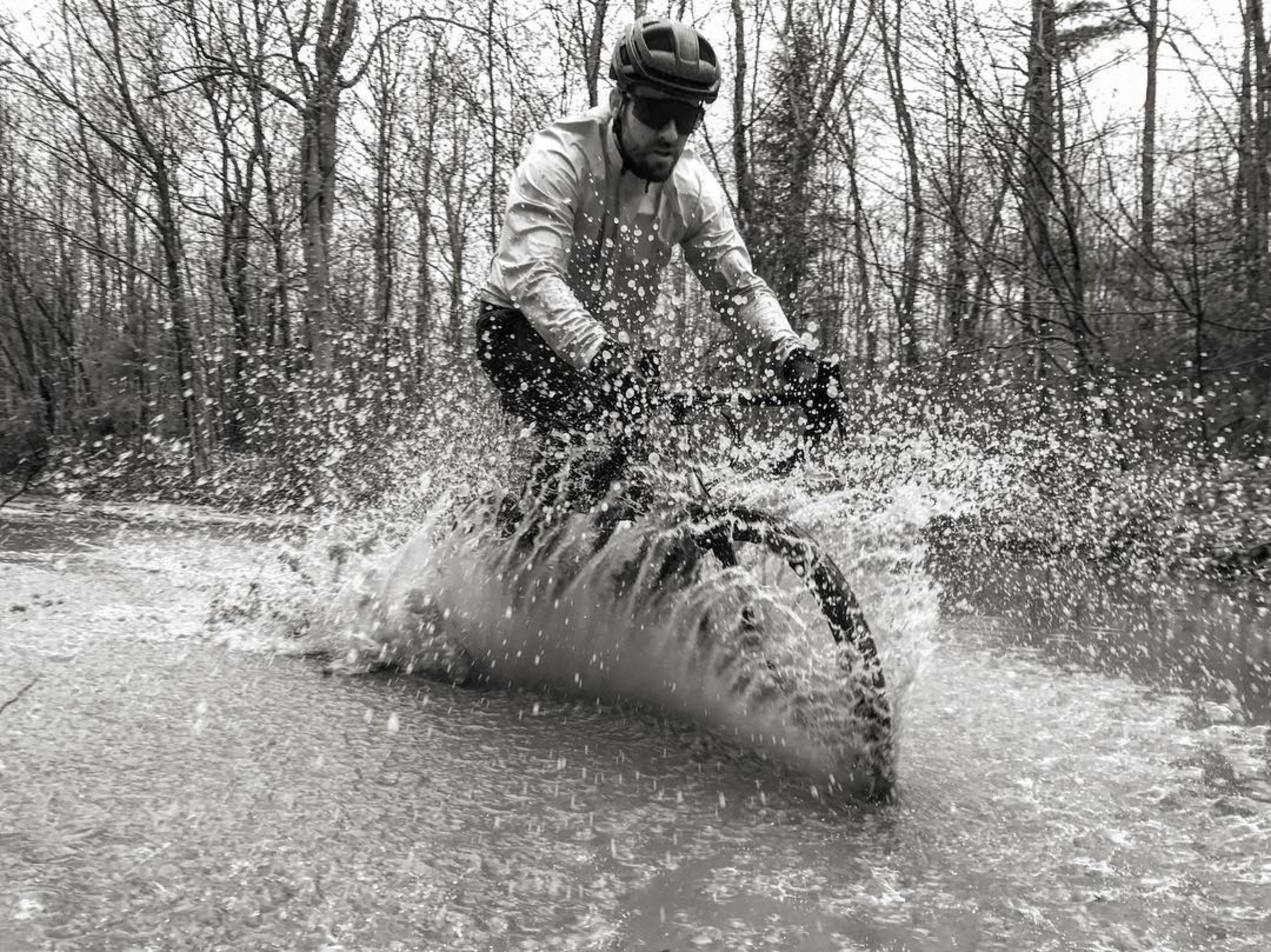 Jason Lowetz Explains Bearclaw Bikes' Origins and Transition from Music Career
Jason Lowetz Explains Bearclaw Bikes' Origins and Transition from Music Career
Interviewer: You mentioned a move back to Michigan from the vibrant music scene of LA, initially to pursue music, yet it led you to the world of bicycles. Could you elaborate on this transition, and is music still a part of your life?
Jason Lowetz: Los Angeles was my home from 1999 to 2009. During that decade, I was immersed in the quintessential rock and roll lifestyle as the lead singer of Vibralounge, a band I formed with my brother and friends. We embraced the rock star image – pleather jackets, oversized sunglasses, and signature hairstyles; mine was a distinctive tri-hawk. Ironically, despite the image, we were quite disciplined and avoided the typical party scene. Our passions leaned towards dirt bikes and mountain bikes; I was particularly drawn to the competitive aspect and the challenge of pushing physical limits.
For four consecutive years, my brother and I undertook a grueling 300-mile non-stop ride from Los Angeles to Monterey on New Year’s Eve. This spirit of endurance continues with the Sancho 200, an annual 200-mile gravel bike race I organize, driven by a desire to inspire others to discover their own physical potential. It’s astounding what humans can achieve!
While we made inroads into the music industry, ultimately, it wasn’t a sustainable career path financially. Serendipitously, my then-girlfriend’s father (now my father-in-law) had some bike assembly knowledge. When I applied for a job at Montrose Bike Shop, bike assembly became my impromptu interview. I was hired, and soon after, I was immersed in road biking and racing.
By 2009, racing had become a significant part of my life in Southern California. I achieved Cat 1 roadie status! We formed Team Bearclaw, named after my alter ego, Chet Bearclaw. The team grew to include a Cat 1 road team and over 20 racers across various road and MTB categories. As a sprinter, my racing highlight was winning the Manhattan Beach Grand Prix Criterium. Our team even had a 1970s Winnebago RV, which doubled as my brother’s residence – we were living the high life, or so we thought.
In 2009, I reconnected with Kristie, an old flame living in Denver. We both felt ready for a change, and Michigan beckoned. Moving back to Traverse City opened my eyes to a surprisingly vibrant local bike scene. I had no preconceived notions but quickly discovered legitimate races and a passionate cycling community. Connections grew, leading to the formation of another race team, Einstein Racing, in Traverse City. Its popularity soon paved the way for my own bike shop, Einstein Cycles. We started modestly, in a garage, without loans, relying on family funds and maxed-out credit cards. When the township intervened and shut down our garage operation, it pushed us to quickly establish a retail location.
This gamble paid off handsomely. Within three years, Einstein Cycles reached over a million dollars in annual sales. The shop’s success provided the foundation for me to venture into creating my own bike brand. For the past three years, Bearclaw Bicycle Co. has been my primary focus, and it’s been an incredibly rewarding journey.
And music? Music remains a deep passion, now pursued in my basement for personal enjoyment. I hope to share some of it publicly someday, but for now, it’s free from pressure and deadlines.
Traverse City: An Unlikely Hub for a Bike Company?
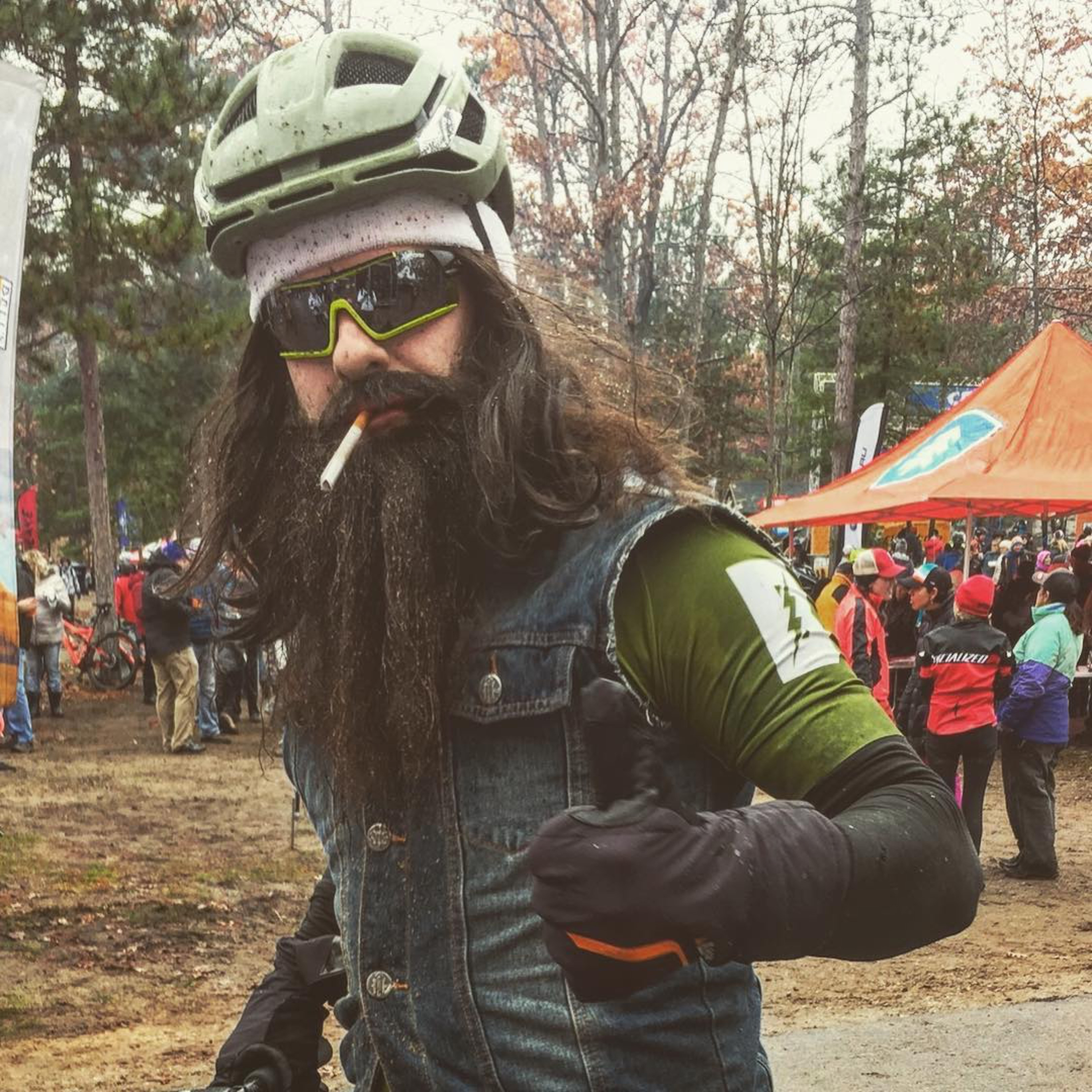 Bearclaw Bikes Showcased at Frosty Fat Bike Race in Traverse City, Michigan
Bearclaw Bikes Showcased at Frosty Fat Bike Race in Traverse City, Michigan
Interviewer: Traverse City is renowned for its beaches and winter Nordic ski trails, but it seems an unconventional location for launching a bicycle company. What led you to believe Northern Michigan was the ideal place to influence bicycle design and establish a bike brand like Bearclaw Bikes?
Jason Lowetz: When I opened Einstein Cycles in 2011, the seasonal nature of the bike business in Northern Michigan became immediately apparent. I realized I needed a winter revenue stream. Discovering a local interest in fat biking, I collaborated with others to develop winter trails. We started by snowshoeing trails, then riding them on Salsa and Surly fat bikes. Within a few years, we were grooming trails with snowmobiles and selling out of carbon Salsa Fat Bikes. This surge in fat bike popularity sparked the idea for a new bike brand.
My industry connections and inherent curiosity gave me the confidence to pursue it. My vision was to design a fat bike that mirrored the agility of the 29er hardtail cross-country bikes we rode in the summer. Securing a bank loan for this venture, Bearclaw Bicycle Co. was born. A year later, we launched the Balthazar, our carbon fat bike. Its design, which blends nimble handling with the capacity for massive 5” tires, remains a cornerstone of our success. Plus, we think it’s a pretty sharp-looking bike.
The following spring, we observed that riders continued using their fat bikes even after the snow melted. They were reveling in the ability to float through sandy trail sections and conquer obstacles previously off-limits. It turned out that large tires were perfectly suited to Northern Michigan’s sandy terrain.
This affinity for big tires extended to our gravel bike designs. After countless hours exploring Northern Michigan’s gravel roads, it became clear that the prevalent 35c tire clearance on gravel bikes was inadequate. We needed 700 x 50 or larger. Initially considering carbon, we opted for titanium, recognizing its durability for the demanding riding we envisioned. We’ve since become ardent advocates for titanium.
So, to directly answer your question, Northern Michigan is, in fact, the perfect environment for Bearclaw Bikes. It offers a diverse landscape – singletrack, two-track, gravel roads, and paved roads – and wildly varying weather conditions across seasons. A few years ago, the average February temperature was a frigid 6 degrees! We also get substantial lake-effect snow. Summers are warm, and the soil is predominantly sandy, making trails quite loose by mid-summer. In this region, big tires are not just a preference; they are a necessity.
Shop Roots: Customer Connection at the Core
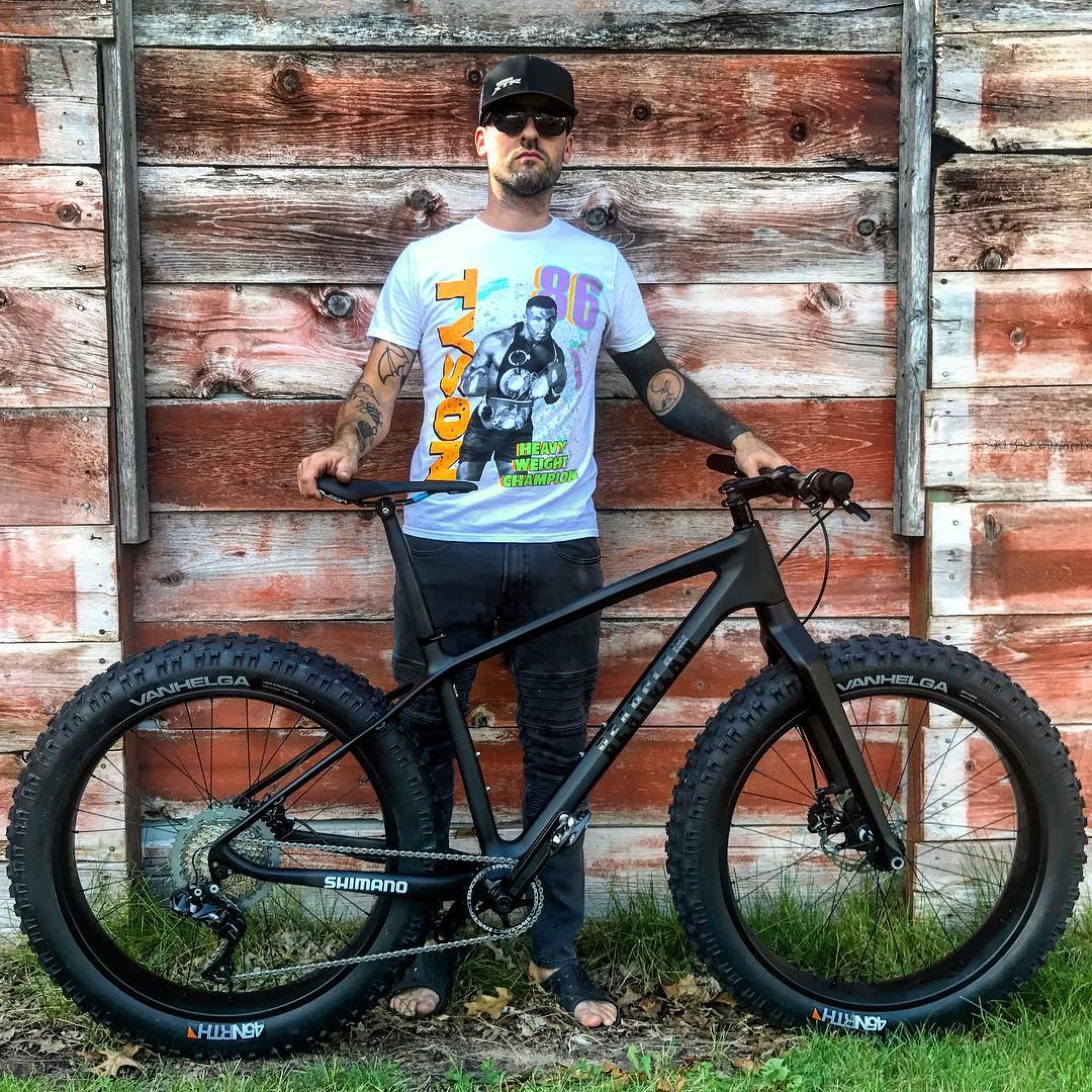 Close Up of Bearclaw Bikes Frame Detailing and Craftsmanship
Close Up of Bearclaw Bikes Frame Detailing and Craftsmanship
Interviewer: Your background includes working in bicycle shops. How has this experience shaped your approach to Bearclaw Bicycles?
Jason Lowetz: My shop experience is fundamental to Bearclaw Bicycle Co.’s identity and what makes it unique. The direct retail connection we maintain with our customers is invaluable. I believe customers genuinely appreciate this accessibility. In today’s market, such direct interaction is rare. Our customer contact number is literally my personal cell phone. This close relationship informs our designs and ensures we remain responsive to rider needs and feedback.
The Fat Bike Future: Beyond the Trend?
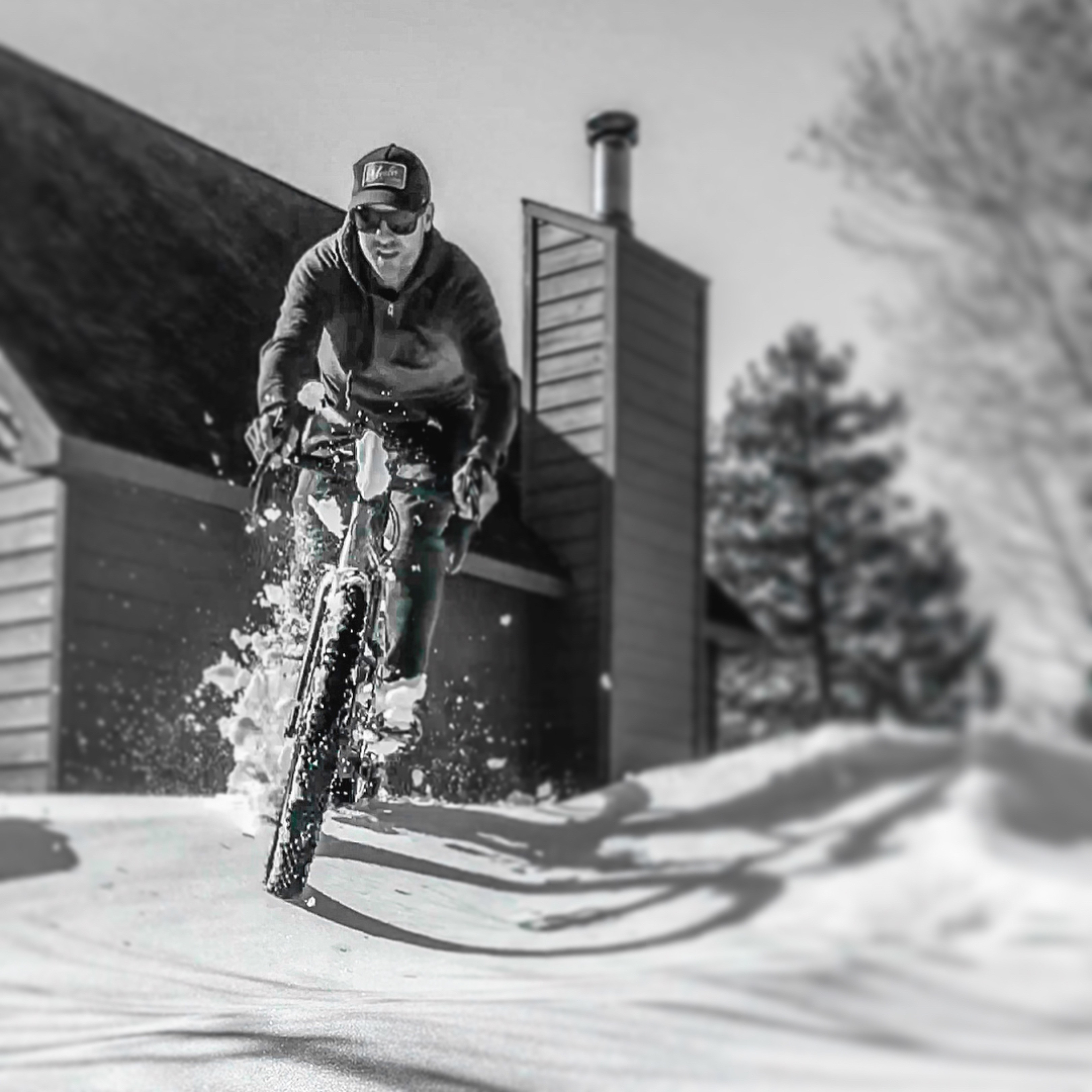 Rider on a Bearclaw Bikes Fat Bike in a Snowy Winter Landscape
Rider on a Bearclaw Bikes Fat Bike in a Snowy Winter Landscape
Interviewer: Bearclaw began with the Balthazar, a fat tire bicycle. At events like Interbike, fat bikes seemed to have peaked in popularity. Where do you see fat bikes fitting into the cycling landscape moving forward?
Jason Lowetz: Fat bikes are far from a fleeting trend. They are simply too enjoyable and capable across diverse terrains to disappear. I anticipate continued growth in snowbelt regions as more areas develop winter fat bike trail grooming infrastructure. Traverse City’s groomed fat bike trail network has expanded to over 20 miles, and Marquette boasts a thriving winter bike scene as well. Fat bikes are more than just snow bikes; they are year-round adventure machines.
The One-Quiver Dream: Versatility of Bearclaw Bikes
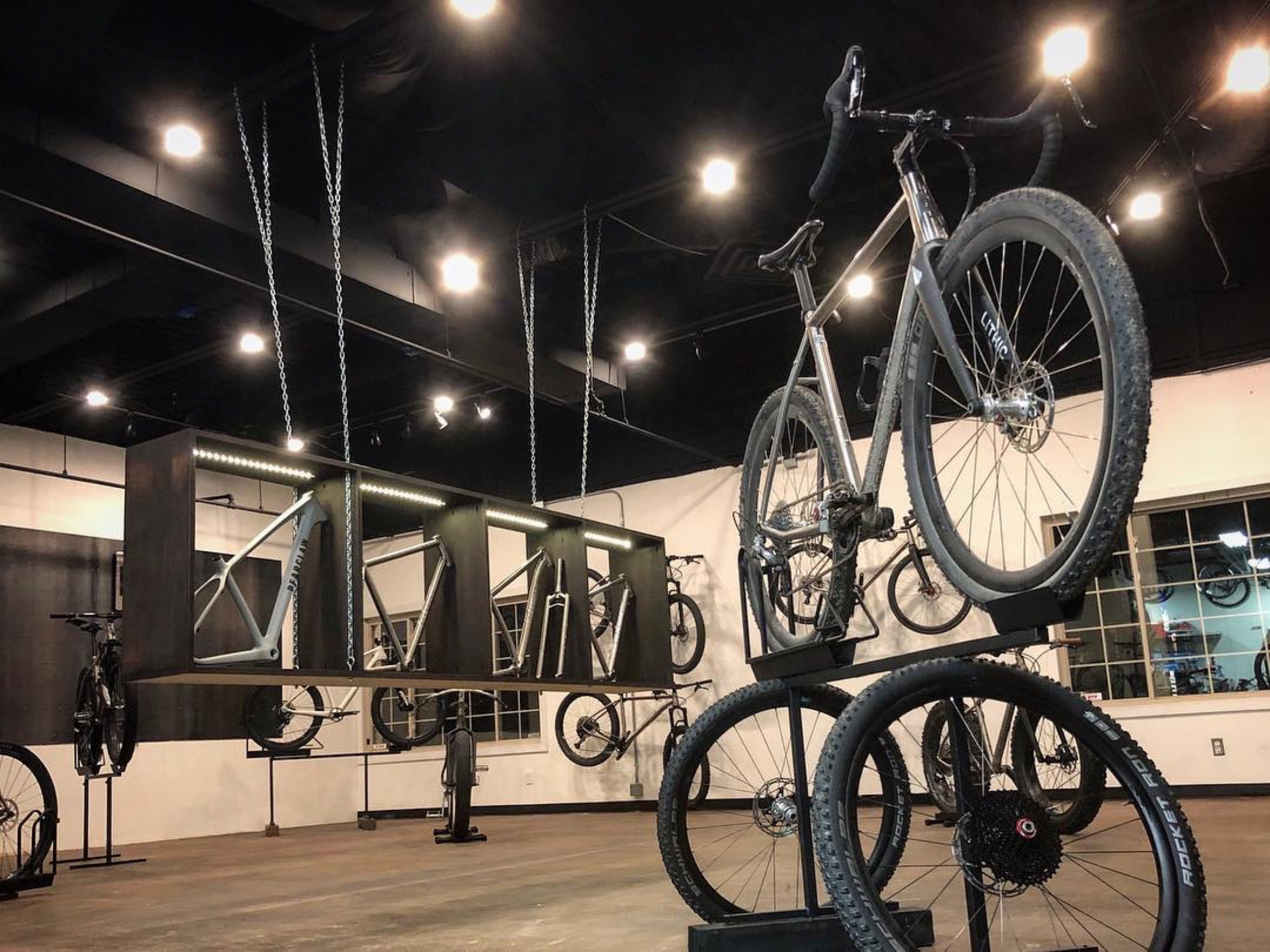 Bearclaw Bikes Thunderhawk Titanium Gravel Bike on a Scenic Trail
Bearclaw Bikes Thunderhawk Titanium Gravel Bike on a Scenic Trail
Interviewer: Bearclaw is creating bikes that could genuinely be considered “one-quiver” rigs. Is this intentional – to design bikes adaptable to various terrains and disciplines with simple wheel swaps?
Jason Lowetz: Versatility is central to our bike design philosophy. All Bearclaw bikes are engineered to accommodate a range of wheel sizes, maximizing their utility across seasons and for different riding styles. Our Thunderhawk, for example, can transform from a local road race contender with narrow tires to a backcountry explorer with 27.5×2.4 tires. We’re seeing a growing trend of road cyclists embracing wider tires on the Thunderhawk, seeking adventures beyond paved roads and car traffic.
If I were limited to a single bike, it would undoubtedly be a Thunderhawk. It’s capable of cross-country tours on pavement or gravel, criterium races, and multi-day singletrack expeditions. However, winter fat bike trails would pose a challenge. So, perhaps two bikes are necessary. Then, of course, a titanium fat bike for loaded bike packing trips across Michigan’s Upper Peninsula would be ideal. That makes three. And there’s a strong possibility a fourth Bearclaw model is on the horizon – a trail bike optimized for shred packing in the Colorado Rockies, designed with input from my friend Buck Macho in Durango.
Grinduro Ready: The Perfect Bearclaw Bike
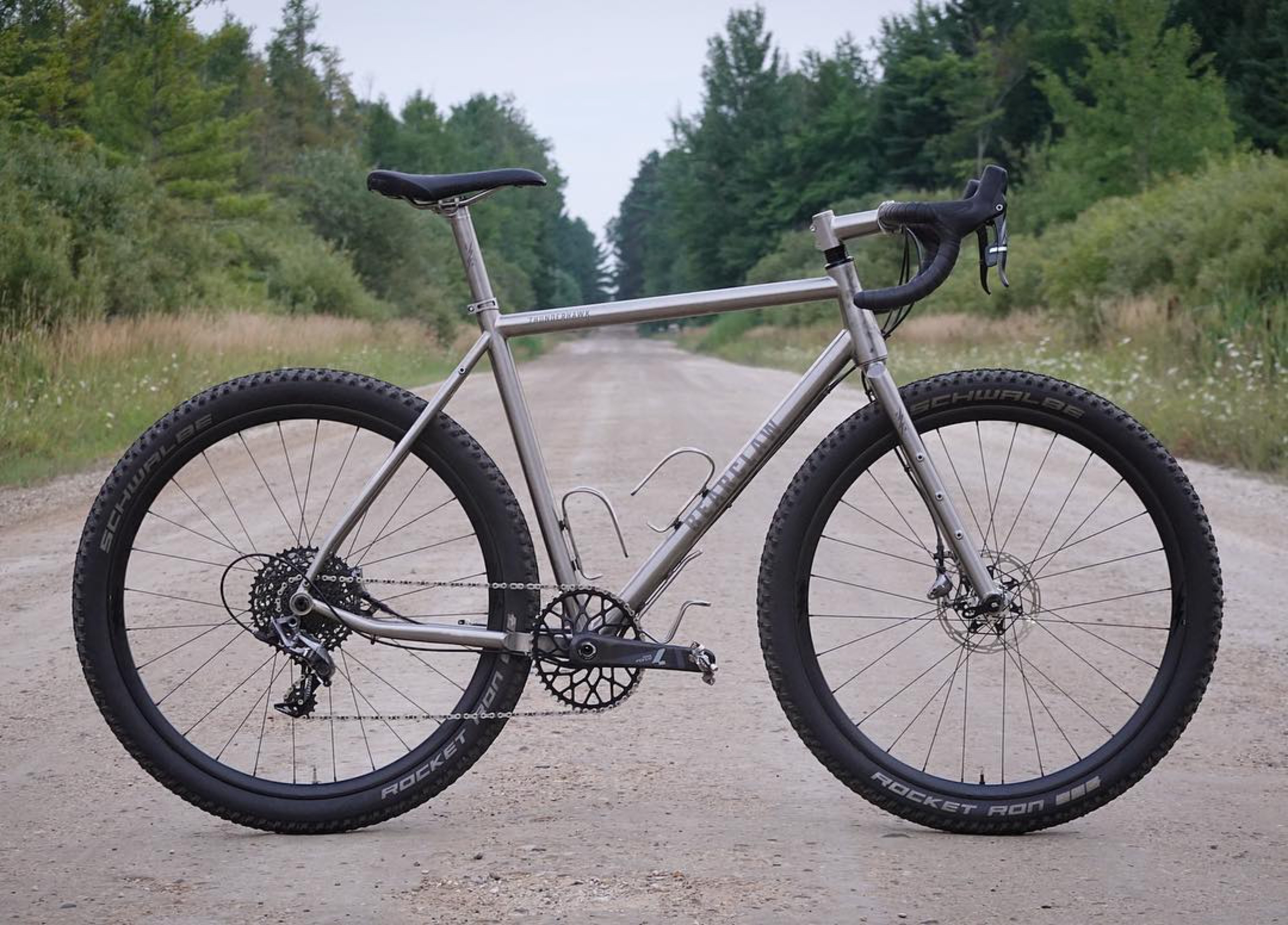 Close-up of Bearclaw Bikes Thunderhawk Titanium Gravel Bike Components and Wide Tires
Close-up of Bearclaw Bikes Thunderhawk Titanium Gravel Bike Components and Wide Tires
Interviewer: If you were building a Bearclaw bike specifically for an event like Grinduro, considering its mix of uphill and downhill timed sections, singletrack, and flat road sections, what would your build look like in terms of components, gearing, and tires?
Jason Lowetz: The Thunderhawk is perfectly suited for Grinduro. I’d equip it with a wide-range 10-46 rear cassette and a 40-42 tooth front chainring. For tires, I’d choose 27.5×2.25 Schwalbe Rocket Ron tires. They offer excellent singletrack performance, are lightweight, and roll surprisingly well on pavement – the ideal all-around Grinduro setup.
Bearclaw Bikes, born in the heart of Michigan, embodies a spirit of versatility and adventure. From fat bikes conquering snowy trails to gravel bikes exploring endless backroads, Bearclaw continues to craft machines that inspire riders to explore their limits, no matter the terrain. Jason Lowetz’s journey from music to bike building has created a brand deeply rooted in passion, innovation, and a genuine connection with the cycling community.
